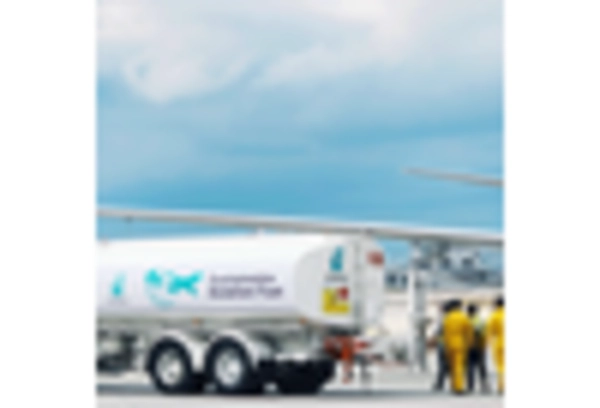Market Trends
Key Emerging Trends in the India Sustainable Aviation fuel Market
In recent years, India has witnessed a notable shift in its aviation sector, with a growing emphasis on sustainability. This transformation is prominently reflected in the market trends of the India Sustainable Aviation Fuel (SAF) sector. Sustainable Aviation Fuel, often abbreviated as SAF, has emerged as a key player in mitigating the environmental impact of aviation, aligning with global efforts to reduce carbon emissions.
One of the noteworthy market trends in India's SAF sector is the increasing demand for alternative and eco-friendly aviation fuels. With a rising awareness of climate change and the environmental consequences of traditional aviation fuels, stakeholders in the Indian aviation industry are actively seeking sustainable alternatives. This demand surge is not only driven by environmental concerns but is also influenced by the regulatory landscape, with authorities encouraging the adoption of cleaner fuel options.
Furthermore, the Indian government's initiatives and policies play a pivotal role in shaping the market trends of SAF in the country. In recent years, there has been a concerted effort to promote sustainable practices in various industries, including aviation. Subsidies, incentives, and regulatory frameworks have been introduced to encourage the production and use of SAF. This has spurred investment and research in the sector, leading to technological advancements and increased production capacities.
Collaborations and partnerships within the aviation industry are another noteworthy market trend. Airlines, fuel producers, and government bodies are increasingly joining forces to develop and implement sustainable aviation fuel projects. These collaborations aim to create a robust ecosystem that fosters innovation, research, and the seamless integration of SAF into the existing aviation infrastructure. Such partnerships also contribute to the scalability of sustainable aviation fuels in India.
In addition to domestic efforts, India is keenly observing and participating in the global dialogue on sustainable aviation fuels. International collaborations and agreements are becoming more prevalent as countries strive to address the challenges of climate change collectively. India's participation in these global initiatives not only enhances its knowledge base but also opens up avenues for the exchange of technology and expertise in the sustainable aviation fuel market.
The market trends also indicate a gradual reduction in the cost of sustainable aviation fuels. As technology advances and production scales up, the cost per unit of SAF is expected to decrease, making it a more economically viable option for airlines. This cost reduction is crucial for the widespread adoption of sustainable aviation fuels and aligns with the aviation industry's broader goals of achieving carbon neutrality.
Despite these positive trends, challenges remain in the widespread adoption of sustainable aviation fuels in India. Infrastructure limitations, the need for large-scale production facilities, and potential market fluctuations are factors that require strategic planning and intervention. However, with the current momentum and commitment from stakeholders, the India Sustainable Aviation Fuel market appears poised for substantial growth in the coming years.
The market trends of the India Sustainable Aviation Fuel sector reflect a dynamic landscape marked by increasing demand, government support, collaborative efforts, and a gradual reduction in costs. These trends underscore a collective commitment within the Indian aviation industry to transition towards a more sustainable and environmentally responsible future. As global concerns about climate change intensify, the trajectory of India's sustainable aviation fuel market is not only relevant for the nation's aviation sector but also contributes to the broader global efforts for a greener aviation industry.



















Leave a Comment